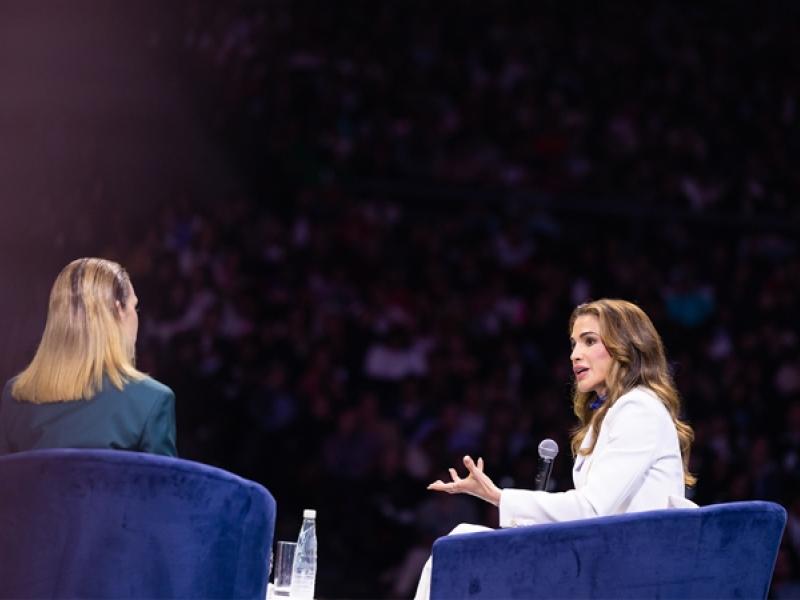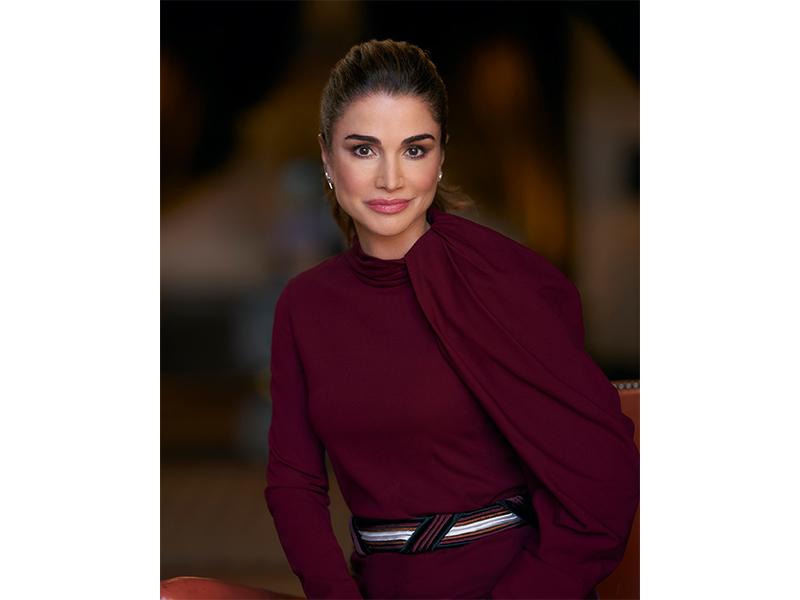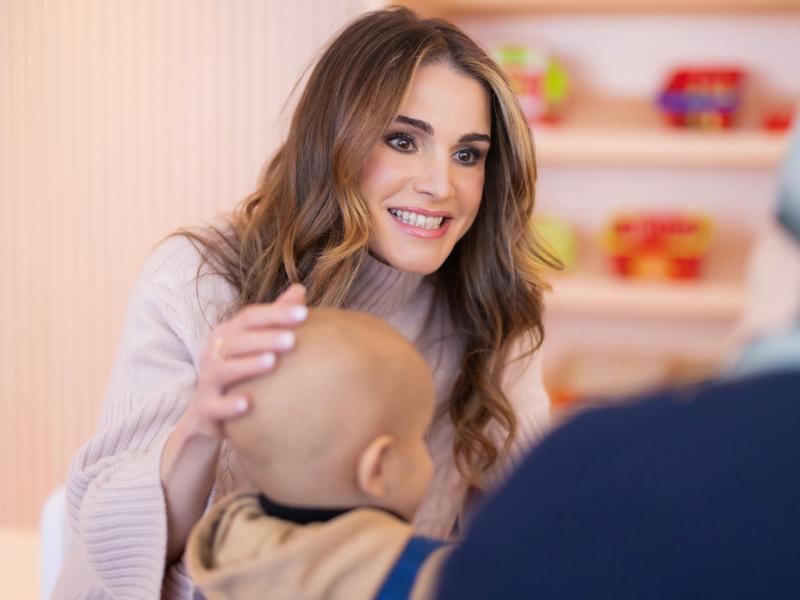Few women from the Arab world have captured world attention as Jordan's glamorous Queen Rania Al-Abdullah. With her stunning good looks, impeccable fashion sense and deep commitment to a progressive agenda, Rania, at a young 35, has emerged as the Middle East's outstanding spokesperson. Born in Kuwait to Palestinian parents (almost half the population in Jordan is of Palestinian origin), she graduated in business administration from the American University in Cairo. While working with Apple Computers in Amman, she met her husband, then prince Abdullah II, at a party and they married in 1993. Just before he died in 1999, King Hussein, Abdullah's father and the region's longest serving monarch, in a surprise move changed the line of succession. Instead of his younger brother Crown Prince Hassan, he designated Abdullah, making Rania the world's youngest queen. A mother of four, Rania balances her multiple roles with elan. She insists on driving her black Mercedes SUV herself through the streets of Amman. Before she flew in to address the India Today Conclave, Rania gave an exclusive interview to Managing Editor Raj Chengappa. Excerpts:
Have India and Jordan been able to achieve the full potential of their relations?
I don't think so, because I feel that India and Jordan can be natural partners. We are both trying to grasp the best of the 21st century without letting go of our culture and identity. Jordan is starting on the path to democracy and we have many lessons to learn from India. In terms of trade, we both have a long history of seeking out faraway lands to do business. We can reinvigorate that spirit and reinvent a 21st century Silk Route. Not just in terms of goods, silks and spices, but more in knowledge and know how.
There is no signature theme in our relations. What can be done?
It's got to be about people-to-people. Although it is useful to have government agreements, there should be more private sector-to-private sector, NGO-to-NGO ties. We already have a free trade agreement with India which means that there are no tax restrictions or barriers, and India actually has a lot of private sector presence in Jordan. In fact, one of the largest bridges in Amman is being built by an Indian company. There is a lot the private sector can do to make use of the current boom happening in our region, whether in construction or development projects.
India doesn't play a significant role in the Middle East calculus.
Our part of the world yearns for India to play a greater role. Our region is a very complex one, and the situation has not been stable in the past few years. Violence has escalated. India has an important role because you have always had contact with us and understand our sensitivities.
How do you view the boom in the Indian economy?
Like the rest of the world, we view India as the rising star of Asia. India had such a strong presence at the World Economic Forum recently. India is doing it the right way. It faces a lot of challenges and has its work cut out in terms of dealing with them.
There has been a spate of violence over the cartoons denigrating Islam. What can be done to bring about more religious tolerance?
It comes from understanding. It is very hurtful for Muslims to see their entire religion, with its history, being reduced to such crude caricatures. On the other hand, the violent demonstrations that led to loss of lives were also wrong.
Now the question is, how do we get the moderates together? A lot of people talk about a clash of civilisations, but, as my husband has said, it is really a clash of a minority group of extremists against all civilisations. The onus is on us, the silent majority, to stop being silent, to come out and say how we can build bridges of understanding. Only then can we hope to defeat these extremists.
How does one improve the status of women in Islam?
Gender inequality is a global problem. I don't believe the status of women has been negatively affected by Islam, per se. Islam provides women with their rights. It is more cultures, traditions and about changing mindsets of people. That's a more difficult thing to do.
According to the World Bank, the Middle East and North African regions are among the biggest spenders on health and education for women. So we are doing a lot to close the gender gap in these two fields. The question is, what happens after these women graduate. Their participation in the workforce is very, very low. So, although we are making huge investments in education, we are depriving ourselves of the returns of that investment.
© Copyright, India Today Magazine


